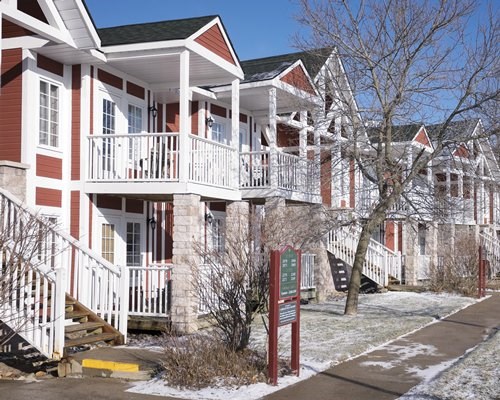Timeshare owners, particularly those who have abandoned their memberships, might want to keep an eye on the liquidation process of two timeshare properties in Oro-Medonte Township, a Barrie lawyer suggests.
The current focus for the court-appointed receiver of the Carriage Hills and Carriage Ridge timeshare resorts in Horseshoe Valley is to strike a deal with “delinquent” owners who, combined, owe approximately $24 million.
During a hearing broadcast over YouTube on Wednesday, Sanjeev Mitra, the lawyer representing receiver BDO Canada Ltd., presented a proposal for those members.
Of the approximately 11,000 timeshare owners, around 2,500 have been identified as delinquent for not having paid their fees.
“We’re proposing to offer to settle if these people pay… within 30 days of service,” he told the court. “We are proposing to forgive the interest and the (late) fee.”
The receivers will try to recoup $11.6 million in basic charges from Carriage Hills and Carriage Ridge owners combined. In addition, there’s a $1,000 delinquency, which adds up to $2.4 million and a $500 collection fee, which is another $1.2 million for a grand total of $15.2 million.
The interest and late fees, which add up to about $10 million, would be forgiven.
Once they’re paid up, they’ll then be among the owners getting a cut of the profits when the property is sold.
"The structure of the settlement process, in my view, strikes the appropriate balance between giving an opportunity for delinquent members to settle their outstanding account and receive a benefit through the discount, on the one hand, and the ability for the receiver to have the certainty of receiving these overdue accounts and being able to use the funds to defray ongoing expenses of the resorts during the receivership process, on the other hand,” Justice Barbara Conway wrote in the resulting court order issued later in the day.
Carriage Ridge has 78 units within three buildings on eight acres, and Carriage Hills has 172 units in eight buildings on 20 acres running independently from Horseshoe Resort, a major ski and golf resort in Oro-Medonte Township, north of Barrie.
The properties had been operating at a deficit and are now listed for sale through a court-approved receivership process. The timeshare resort’s operations ceased on Jan. 6.
According to a Jan. 31 report by the receivers, 1,607 delinquent Carriage Hills owners owe a combined $16 million.
The report identifies $8 million as being owed by 906 delinquent Carriage Ridge owners.
And while accessing all the delinquent owners and collecting the money could be an extraordinary, labororius approach, a local lawyer suggests others with timeshares elsewhere may want to pay attention, particularly if they’ve abandoned their membership, as well others considering making similar purchases.
“I would say that this could be a very unpleasant lesson for others who are minded to invest in timeshares,” said lawyer Andrew Rogerson, who is not involved in the case.
The problem in the Horseshoe timeshares, he said, is that owners had a “veritable life sentence” because they were forever tied to their ownership, unless they were able to sell their interval.
Given the declining market for timeshares in recent years and the inability for the owners of the Carriage Hills/Carriage Ridge resorts to unload them, many felt trapped and simply turned their backs on it all.
“It's a sort of agreement that contains no exit falls unless you can find someone else to pass the grenade to,” Rogerson observed.
Court appearances for the various stages of the process have been broadcast over YouTube since last summer to allow all the interested members access to the proceedings.
The latest hearing was originally scheduled for Monday, but was postponed when Justice Conway learned members weren’t getting access. On Wednesday, more than 500 people were waiting for the hearing to begin only to learn they had been given the wrong link.
Upon learning that toward the end of the hearing Wednesday, Justice Conway ordered that the correct link remain available for 24 hours to offer access to those who were unable to witness the live event.



